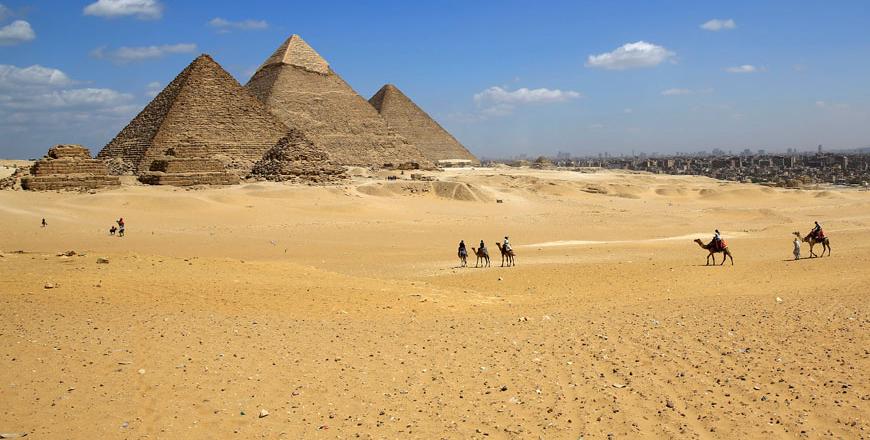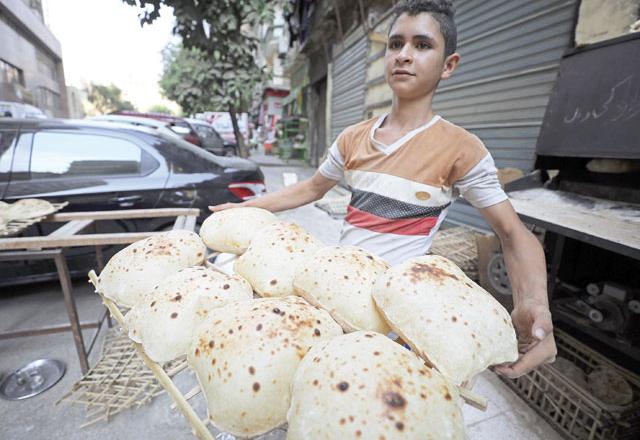You are here
What we know about bomb blast near Egypt’s pyramids
By AFP - May 20,2019 - Last updated at May 20,2019

A damaged bus is seen at the site of a blast near a new museum being built close to the Giza pyramids in Cairo, Egypt, on Sunday (Reuters photo)
CAIRO — Just a month before the African Cup of Nations, Egypt was hit by a bomb blast that undermined efforts to burnish its image as a bulwark of stability after years of turmoil.
The attack on Sunday near the famed pyramids of Giza is another setback to the North African country’s efforts to revive its key tourism industry after years of turmoil.
What happened?
A roadside bomb explosion hit a tourist bus driving on a road close to a lavish new museum under construction overlooking the Giza plateau.
The blast shattered many of the bus’s windows, injuring several of its passengers as well as those of a nearby car.
At least 17 people were wounded in the explosion including foreigners.
South Africa’s foreign ministry said three of its nationals were hospitalised.
No group has claimed responsibility for the attack yet.
Possible scenarios?
A day later, Egypt announced that its security forces had killed 12 suspected militants in police raids near Cairo.
The interior ministry said the militants belonged to the Hasm movement which is believed to be a splinter faction of the outlawed Muslim Brotherhood group.
Hasm has previously claimed responsibility for attacks targeting security personnel and high-profile figures in Egypt including judges.
“The pyramids area is known to be a bastion for the Muslim Brotherhood. Groups like Hasm and Lewaa Al Thawra [believed to be affiliates of the Muslim Brotherhood] have previously claimed responsibility for attacks in this area,” said Political Science Professor Mostafa Kamel Al Sayed.
Hassan Nafaa, another political science professor at Cairo University, said the authorities’ announcement about the killing of militants was meant to give a semblance of order.
“The security establishment wants to prove it’s effective and successful... by announcing it killed 12 members of the Hasm movement to give the impression it is behind the attack,” he said.
The ministry’s statement did not directly link the raids to the bus attack.
Precedents?
Egypt’s tourism sector has been hit by a string of previous attacks, most recently in December when three Vietnamese nationals and an Egyptian tour guide were killed in an explosion.
Back then, a home-made explosive device struck their bus which was also driving near the site of the pyramids.
It followed a lull in attacks since the 2017 stabbing of two women on a beach in the seaside resort of Hurghada.
The heaviest blow to Egypt’s tourism sector was in October 2015 when a bomb attack claimed by the Daesh group downed a Russian airliner shortly after take off from the resort city of Sharm El Sheikh, killing 224 people on board.
Impact on tourism?
Sunday’s attack follows signs of a recovery in the long-suffering tourism industry.
Egypt is set to host the African Cup of Nations from June 21 to July 19 which it sees as an opportunity to show that the country is safe and able to handle an influx of tourists.
Tourism has been reeling from turmoil since the 2011 overthrow of Hosni Mubarak in a popular uprising.
In 2010, Egypt welcomed a record 14.7 million tourists, but by 2016 that figure had plunged by nearly two-thirds, to 5.3 million.
The following year witnessed a rebound with arrivals reaching 8.3 million, according to the official statistics agency.
Earlier this month, Tourism Minister Rania Al Mashat said the key industry accounts for about a fifth of the country’s gross domestic product.
Despite the high stakes, some believe Sunday’s attack is unlikely to have a significant impact on tourism.
“It is a minor incident and it has become common that similar occurrences take place in other areas around the world,” said Sayed.
Related Articles
CAIRO — Gunmen on a speeding motorcycle opened fire outside the famed Giza Pyramids on the outskirts of Cairo early Wednesday, killing two p
CAIRO — Egyptian militant group Hasm claimed responsibility on Sunday for a small explosion at Myanmar’s embassy in Cairo, saying it was in
CAIRO — Egyptian security forces killed three suspected militants in an exchange of gunfire at a farm they believed to be a militant hideout













